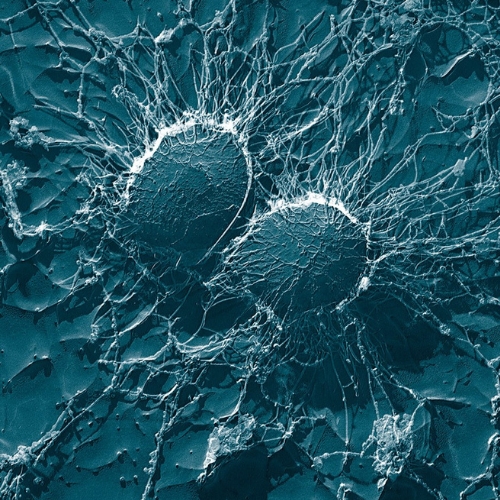Growing older is often thought of as an inevitable decline in energy, muscle strength, and memory. Yet scientists are finding that ageing is not only written in our genes or daily habits, but also in the hidden community inside us: the trillions of microorganisms that make up the gut microbiota. These tiny inhabitants help digest food, produce vitamins, regulate immunity, and even influence mood. Researchers are beginning to see them as silent partners in health.
A recent study from Peking University People’s Hospital examined how gut microbiota patterns relate to physical function and longevity. The research team worked with adults over 60 years old, including a group of participants in their nineties. By comparing the microbial balance of long-lived individuals with younger elderly people, the scientists aimed to see whether differences in the gut ecosystem could help explain who ages with resilience.
Exploring Healthy Longevity
The concept of “healthy ageing” has become increasingly important as the world’s population grows older. It does not simply mean adding years to life, but preserving physical abilities, independence, and mental well-being. To assess this, researchers used standard measures of health in older age, including tests of grip strength, cognition, and mobility. They also looked at intrinsic capacity, a World Health Organization measure that combines both physical and mental function.
Fifty-one older adults took part, of which 27 were between 90 and 98 years old. The others were aged 60 to 89. All participants underwent careful evaluation of their health, dietary habits, and psychological state. The researchers also collected stool samples to study the genetic composition of gut bacteria using advanced sequencing. This gave a detailed picture of the microbial communities present and the metabolic pathways they supported.
The Microbial Signature of Ageing
The results revealed that long-lived individuals shared some distinct microbial traits. Bacteria such as Akkermansia muciniphila and Bifidobacterium dentium were more abundant in this group. Both are linked to better gut barrier function, improved metabolic control, and reduced inflammation. In contrast, some frail individuals from the younger group carried higher levels of Escherichia coli, a bacterium known to be opportunistic and sometimes harmful when immunity is low.
Interestingly, the overall diversity of bacteria was not significantly reduced in those over ninety compared with younger elderly participants. This goes against the common assumption that diversity inevitably falls with age. Instead, the type of bacteria present seemed to matter more than the total number. Beneficial microbes appeared to play a larger role than previously thought in supporting health during extreme old age.
Strength in the Gut
Muscle strength is a strong predictor of healthy ageing. In this study, grip strength correlated with the presence of specific gut bacteria, including Roseburia hominis and Eubacterium rectale. These species are known for producing butyrate, a short-chain fatty acid that supports gut lining health and reduces inflammation. The findings suggest that maintaining certain bacteria may help preserve muscle performance, even in advanced age.
This gut–muscle link raises the possibility that microbial health is tied not only to digestion or immunity, but also to physical resilience. Stronger muscles mean better mobility, lower risk of falls, and a higher chance of living independently. If microbes help maintain these functions, they may be quiet contributors to the quality of life in later years.
Diet, Emotion, and Microbes
Lifestyle factors also played a role. The study found that daily milk consumption was linked with a healthier gut profile. Long-lived adults without frailty were more likely to drink 300 to 500 millilitres of milk daily compared with frail participants. On the emotional side, anxiety symptoms were tied to less favorable microbial compositions, showing that mental health and gut ecosystems are closely linked.
These insights reinforce the idea that diet and emotional state affect ageing through multiple pathways. Milk and other nutrient-rich foods may support the growth of beneficial microbes, while stress and anxiety may disturb the delicate microbial balance. The gut appears to be a key intersection where nutrition, psychology, and physiology meet.
Pathways of Longevity
Beyond bacterial names, the study examined what these microbes were doing. Long-lived adults showed enrichment in metabolic pathways involved in amino acid synthesis, including L-isoleucine, L-valine, and L-threonine. These amino acids are important for protein production, tissue repair, and immune regulation. Their increased presence suggests that the microbiota of the long-lived may contribute directly to physical function by improving nutrient availability.
In contrast, pathways linked to harmful or less efficient metabolism were reduced in the frail group. This indicates that healthy ageing may depend not only on the presence of helpful bacteria but also on the metabolic activities they perform.
A Step Toward Biomarkers
One of the most striking conclusions from the study is that microbial changes may appear before clinical signs of frailty. This means that monitoring gut microbiota could serve as an early warning system for ageing-related decline. Identifying microbial markers could help doctors predict who is at risk of losing physical function and intervene earlier with dietary changes, probiotics, or lifestyle recommendations.
Looking Ahead
Of course, the study had limitations. It involved a relatively small group of participants, and being observational, it cannot prove cause and effect. We still do not know whether the microbes directly protect against decline or simply reflect healthier lifestyles. Larger studies and long-term follow-ups will be needed to untangle these relationships.
Yet the message is clear: the gut microbiota is deeply entwined with ageing. Rather than being passive passengers, microbes may actively shape how well we grow old. Maintaining a rich and balanced gut ecosystem—through diet, emotional health, and possibly future microbial therapies—could become a cornerstone of healthy longevity.
Conclusion
Ageing is not just a story of time passing but of interactions between our body and its invisible companions. The new findings suggest that those who live longest and healthiest may be supported by a thriving community of microbes that enhance resilience, metabolism, and strength. As science advances, nurturing the gut may stand alongside exercise, sleep, and good nutrition as one of the essential pillars of ageing well.
The study is published in the journal Microorganisms. It was led by Lihua Deng.







